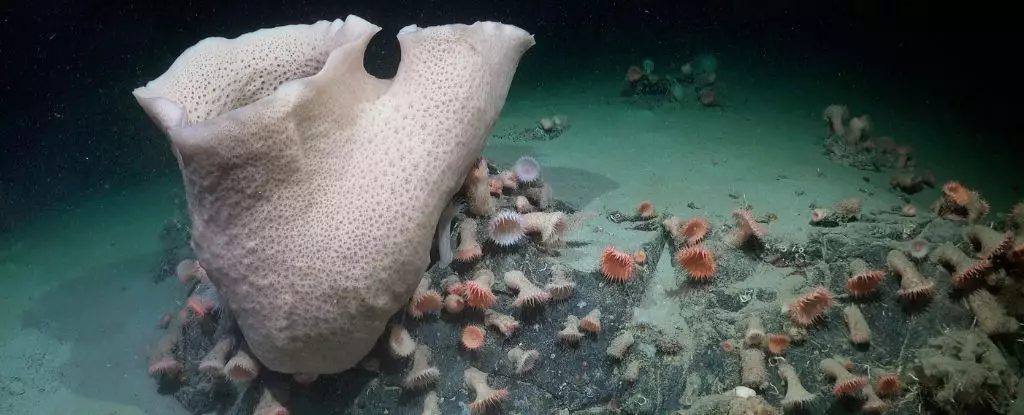In early 2025, the dynamic Antarctic landscape yielded a remarkable surprise when a massive iceberg, comparable in size to the city of Chicago, broke free from the George VI Ice Shelf. This colossal event was not merely a spectacle of nature’s power; it uncovered an unknown treasure trove of life thriving beneath the ice—a hidden ecosystem previously shrouded from the world. As researchers mobilized swiftly to investigate the depths, they stumbled upon an extraordinary network of sponges, anemones, hydroids, and even coral, indicating a rich biodiversity flourishing in a realm that had long been a mystery to scientists.
The act of nature’s revelation speaks not just of serendipity but of the enduring connection between unexpected findings and the scientific acumen of human explorers boldly navigating uncharted territories. Co-chief scientist Patricia Esquete’s enthusiasm upon witnessing such beauty underscores how the allure of discovery often fuels intellectual curiosity and urgency.
The Fragility of Life in the Abyss
What is particularly striking about these findings is the delicate balance of life existing beneath the impenetrable ice. Scientists believe that this ecosystem, isolated from sunlight and nutrient flows, has survived purely through oceanic currents—an astonishing feat of evolutionary resilience. The sheer depth at which these species thrive—up to 230 meters below sea level—raises questions about life beyond our traditional understanding of ecological systems. These living creatures have adapted to extreme conditions, defying the odds and thriving in an environment that many assume would be too inhospitable for life.
Yet, the iceberg’s calving also serves as a stark reminder of climate change’s profound impacts. The stark contrast between the isolated life below and the waning ice above starkly illustrates the precarious balance of nature. As global temperatures rise and ice shelves retreat, ecosystems that have existed in isolation for centuries may face disruption. This is a poignant moment, one urging humanity to reflect on the consequences of its actions, with potential repercussions that extend far beyond the confines of Antarctica.
Technological Triumphs Amidst Complexity
The exploration of this newly exposed habitat was made possible through cutting-edge technology and the audacity of human research teams. Utilizing the remotely operated vehicle (ROV) named SuBastian, the team navigated the challenging conditions under thick ice, relying on acoustic signals instead of GPS due to the extreme obstacles. This innovative approach exemplifies how the avant-garde of marine exploration often lies in the creative problem-solving of committed scientists.
Co-leader Aleksandr Montelli aptly noted that this expedition is groundbreaking in its scope and interdisciplinary nature. By blending various fields of study, the team is forging pathways to greater understanding of these enigmatic marine environments. It illuminates the necessity for collaboration in scientific investigation—different viewpoints and expertise converge to craft a narrative about life that has been withheld from the human eye for so long.
Uncharted Territory—A Call to Action
The contrast between the newly discovered biodiversity around the recently exposed seabed and the rich ecosystems that were present before the ice retreated is astonishing. In nearby sectors of the Bellingshausen Sea, researchers observed congregations of corals and other unique marine species that have capitalized on the newly exposed environment.
These realizations prompt broader questions about marine conservation and the stewardship our planet requires. If life can flourish so vibrantly following the retreat of ice, what consequences arise from accelerated global warming and the overarching threats to biodiversity? As humanity grapples with climate adversity, the responsibility is increasingly placed on all of us to advocate for policies and practices that protect these critical ecosystems.
Rather than viewing these findings as isolated incidents, they should galvanize a global response to environmental sustainability—acknowledging that the complexities of our natural world demand more than passive observation; they require proactive engagement. The Antarctic discoveries are just the beginning—insights gathered now can profoundly influence future conservation efforts and our understanding of life amidst change.


Leave a Reply